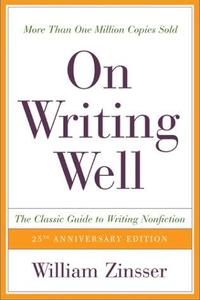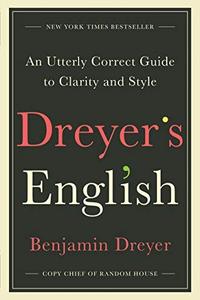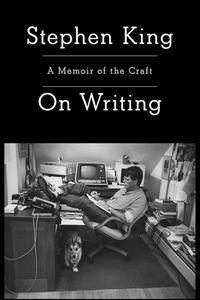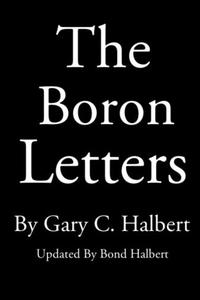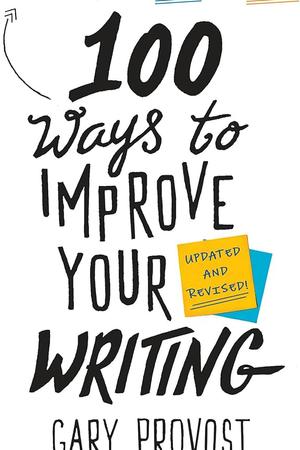
100 Ways to Improve Your Writing by Gary Provost: Summary & Notes
by Gary Provost
In One Sentence
Practical tips for clearer, more engaging writing—from sentence structure to storytelling, in bite-sized lessons.
Key Takeaways
- Vary sentence length
- Use active voice
- Cut unnecessary words
- Write for readers, not yourself
- Read your work aloud
- Revise ruthlessly
Summary
A fantastic, quick read that can serve as a reference for improving anyone's writing.
Not as in-depth as Dreyer's English, but more focused than On Writing.
Who Should Read This Book
- Writers at any level
- Students
- Business professionals
- Anyone wanting to write better
FAQ
What are the key writing tips?
Use active verbs, vary sentence length, cut filler words, read aloud, write simply, and revise multiple times.
📖 Chapter-by-Chapter Breakdown
Click to expand the full detailed notes for every chapter →
📖 Chapter-by-Chapter Breakdown
Click to expand the full detailed notes for every chapter →
Notes
Introduction
- It is the writer’s job, not the reader’s, to see that writing accomplishes whatever goal the writer has set for it.
1. Nine Ways to Improve Your Writing When You’re Not Writing
1 - Get Some Reference Books
2 - Expand Your Vocabulary
- For the writer of average intelligence and education, learning new words is much less important than learning to use easily the words he or she already knows.
2. Nine Ways to Overcome Writer’s Block
2 - Keep a Journal
- You will learn to describe succinctly and clearly the events of your daily life. You will learn to pluck from each event just the details needed to create a sense of the whole. If you keep a journal, you will grow as a writer, and you will find that sooner or later, no matter what you have to write professionally, your personal experiences will play a part.
3 - Talk About What You’re Writing
- When you have a story to write, plug into that computer. Talk about your story. Tell people your subject and your particular slant.
6 - Organize Your Material
- Create a list of questions about your subject before you begin research, and keep related questions together.
8 - Picture a Reader
- Before you write, figure out whom you are trying to reach. Who is the reader and what does he or she know?
- Remember that when you write, the language you have to work with is not your entire vocabulary, but only that portion of it that you share with the reader.
9 - Ask Yourself Why You Are Writing
- Do not write until you know why you are writing. What are your goals? Are you trying to make readers laugh? Are you trying to persuade them to buy a product? Are you trying to advise them? To prove an argument? To inform them so that they can make a decision? If you cannot answer the question “Why am I writing this?” then you cannot wisely choose words, provide facts, include or exclude humor.
3. Five Ways to Write a Strong Beginning
1 - Find a Slant
- Do not try to write everything about your subject. All subjects are inexhaustible.
- Tie yourself to a specific idea about your subject, some aspect that is manageable. That aspect is called the slant.
2 - Write a Strong Lead
- The lead is whatever it takes to lead your readers so deeply into your story or article that they will not turn back unless you stray from the path you have put them on.
- A lead should be provocative. It should have energy, excitement, an implicit promise that something is going to happen or that some interesting information will be revealed. It should create curiosity, get the reader asking questions.
- Your lead should give readers something to care about before it gives them dry background information. “Something to care about” usually means one of two things. Either you give the readers information that affects them directly, or you give them a human being with whom they can identify.
- Note the two important elements in the lead: I made it visible—I showed the reader something; and I made it human—I showed the reader what the topic of the book meant to a real person: me.
- One common mistake you should be aware of is the writing of two or three leads in the same story. Often a writer creates a good lead and then repeats all the information in the second paragraph, and again in the third.
5 - Begin at the Beginning
- Cross out every sentence until you come to one you cannot do without. That is your beginning.
4. Nine Ways to Save Time and Energy
1 - Use Pyramid Construction
- Writing in the pyramid style means getting to the point at the top, putting the “who, what, when, where, and why” in the first paragraph, and developing the supporting information under it.
- A topic sentence contains the thought that is developed throughout the rest of the paragraph. The topic sentence is commonly the first sentence in a paragraph.
- For each paragraph ask, “What do I want to say here? What point do I want to make? What question do I want to present?” Answer with a single general sentence. That is your topic sentence.
- When you rewrite your early drafts, ask how each sentence in a paragraph supports the topic sentence of the paragraph. If the answer is “It doesn’t,” then ask what other work the sentence is doing in the paragraph. If the answer is “None,” get rid of the sentence.
- Your writing will be faster, livelier, and clearer if you write short paragraphs.
7 - Avoid Wordiness
- Wordiness has two meanings for the writer. You are wordy when you are redundant, such as when you write, “Last May during the spring,” or “little kittens,” or “very unique.”
- Wordiness for the writer also means using long words when there are good short ones available, using uncommon words when familiar ones are handy, or using words that look like the work of a Scrabble champion, not a writer.
8 - Steal
- Be a literary pack rat. Brighten up your story with a metaphor you read in the Sunday paper. Make a point with an anecdote you heard at the barbershop. Let a character tell a joke you heard in a bar. But steal small, not big, and don’t steal from just one source. Someone once said that if you steal from one writer, it’s called plagiarism, but if you steal from several, it’s called research. So steal from everybody, but steal only a sentence or a phrase at a time.
9 - Stop Writing When You Get to the End
- A novel ends when your protagonist has solved his or her problem.
- An opinion piece ends when your opinion has been expressed.
- An instructional memo ends when the reader has been instructed.
- When you have done what you came to do, stop.
5. Ten Ways to Develop Style
2 - Listen to What You Write
- To write is to create music. The words you write make sounds, and when those sounds are in harmony, the writing will work.
- Read aloud what you write and listen to its music. Listen for dissonance. Listen for the beat. Listen for gaps where the music leaps from sound to sound instead of flowing as it should. Listen for sour notes. Is this word a little sharp, is that one a bit flat? Listen for instruments that don’t blend well.
3 - Mimic Spoken Language
- Writing should be conversational. That does not mean that your writing should be an exact duplicate of speech; it should not. Your writing should convey to the reader a sense of conversation.
- So strive to make your writing sound like a conversation, but don’t make it an ordinary conversation. Make it a good one.
4 - Vary Sentence Length
- This sentence has five words. Here are five more words. Five-word sentences are fine. But several together become monotonous. Listen to what is happening. The writing is getting boring. The sound of it drones. It’s like a stuck record. The ear demands some variety. Now listen. I vary the sentence length, and I create music. Music. The writing sings. It has a pleasant rhythm, a lilt, a harmony. I use short sentences. And I use sentences of medium length. And sometimes when I am certain the reader is rested, I will engage him with a sentence of considerable length, a sentence that burns with energy and builds with all the impetus of a crescendo, the roll of the drums, the crash of the cymbals—sounds that say, “Listen to this; it is important.”
- So write with a combination of short, medium, and long sentences. Create a sound that pleases the reader’s ear. Don’t just write words. Write music.
7 - Show, Don’t Tell
- When you show people something, you are trusting them to make up their minds for themselves. Readers like to be trusted. Don’t dictate to them what they are supposed to see, or think, or feel. Let them see the person, situation, or thing you are describing, and they will not only like what you have written, they will like you for trusting them.
10 - Don’t Force a Personal Style
- Style is not something you can put onto your writing like a new set of clothes. Style is your writing.
6. Twelve Ways to Give Your Words Power
1 - Use Short Words
2 - Use Dense Words
- When you revise, look for opportunities to cross out several words and insert one. Once a month is monthly; something new is novel; people they didn’t know are strangers.
3 - Use Familiar Words
- A word is familiar if it came easily to you but is not part of some specialized knowledge you have, such as a botanical term. A word is unfamiliar if you never heard of it until you found it in the thesaurus or if you haven’t read it at least three times in the past year.
4 - Use Active Verbs
- Active verbs do something. Inactive verbs are something. You will gain power over readers if you change verbs of being such as is, was, and will be to verbs of motion and action.
5 - Use Strong Verbs
- Generally speaking, verbs are weak when they are not specific, are not active, or are unnecessarily dependent on adverbs for their meaning.
- Sharpen a verb’s meaning by being precise. Turn look into stare, gaze, peer, peek, or gawk. Turn throw into toss, flip, or hurl.
- Inspect adverbs carefully and always be suspicious.
- Most adverbs are just adjectives with ly tacked on the end, and the majority of them should be shoveled into a truck and hauled off to the junkyard.
- Did your character really walk nervously, or did he pace? Did his wife eat quickly, or did she wolf down her supper?
6 - Use Specific Nouns
- Good writing requires the use of strong nouns. A strong noun is one that is precise and densely packed with information.
- Instead of writing about a black dog, maybe you want to write about a Doberman. Do you want to write large house, or is mansion really to the point?
- When a verb is in the active voice, the subject of the sentence is also the doer of the action. The sentence “John picked up the bag” is in the active voice because the subject, John, is also the thing or person doing the action of “picking up.” The sentence “The bag was picked up by John” is in the passive voice because the subject of the sentence, bag, is the passive receiver of the action.
8 - Say Things in a Positive Way…Most of the Time
- Usually what matters is what did happen, what does exist, and who is involved. So develop the habit of stating information in a positive manner.
9 - Be Specific
- Try to be specific without being wordy.
10 - Use Statistics
- Statistics should be sprinkled like pepper, not smeared like butter.
7. Eleven Ways to Make People Like What You Write
1 - Make Yourself Likable
- When you write well, you share a private moment with the readers. Present yourself to readers as someone they would welcome into their homes. Write clearly and conversationally, and strive always to present in your writing some honest picture of who you are.
- Readers will like you if you seem to understand who they are and what their world is like.
- Readers will like you if you use humor in almost everything you write.
- Readers will like you if you show that you are human.
3 - Show Your Opinion
- Few things are duller than a man or woman without an opinion.
- I don’t care if the reader agrees with my opinion. The important thing is that he or she respond to it. If you can stir your reader up, then your writing has achieved some success.
4 - Obey Your Own Rules
- Readers won’t object to any particular tone or rule. They only ask that they be informed and that you don’t break the rules you set.
5 - Use Anecdotes
- An anecdote is a little story or incident that makes a point about your subject. The word comes from the Greek anekdota, which means “things unpublished,” and ideally your anecdote should be an unpublished incident you discovered in your research.
7 - Name Your Sources
- Decide who or what your most valuable sources are, and name only them.
- You can note sources informally in the text, or you can include a note on sources at the front or back of your story.
8 - Provide Useful Information
- Useful information is information that has “service value.” That means readers can do something after they read what you have written.
9 - Use Quotations
- Use quotations when you need to enhance an idea with something poetic or reinforce a generalization or an opinion.
- Don’t use a lot of quotations, however, or they will look more like crutches to hold you than planks to support you.
10 - Use Quotes
- Quotes are the words someone said to you when you interviewed her for your story, or short excerpts from some of the reading you did in your research. Quotes in your story will attract readers.
- Use a quote when the speaker’s words will achieve your goals more effectively than your own words.
- It is perfectly appropriate to cut the fat from interviews and present to the reader only the meat of what the speaker said. However, cut carefully.
11 - Create a Strong Title
- A good title is short.
- A good title hints at the limits of information in the story; that is, it suggests the slant.
- A good title should reveal information, not hide it.
8. Ten Ways to Avoid Grammatical Errors
Prefer Good Writing to Good Grammar
- Whenever you knowingly use poor grammar, you should ask yourself two questions. The first: Is my meaning clear? If the answer is no, rewrite. The second question: What am I getting in return for the poor grammar? If you can’t answer that, don’t use poor grammar.
10. Twelve Ways to Avoid Making Your Reader Hate You
1 - Avoid Jargon
- Here’s a tip: If you can make a man sound like an idiot simply by quoting him, he’s probably using pretentious jargon.
3 - Avoid Parentheses
- If you are using parentheses more than three times in a ten-page story, you are either interrupting the reader too much or you are using parentheses unnecessarily.
- Mark Twain wrote, “A parenthesis is evidence that the man who uses it does not know how to write English or is too indolent to take the trouble to do it; . . . a man who will wantonly use a parenthesis will steal. For these reasons I am unfriendly to the parenthesis. When a man puts one into my mouth, his life is no longer safe.”
4 - Avoid Footnotes
- John Barrymore said, “A footnote in a book is like a knock on the door downstairs while you are on your honeymoon.”
7 - Don’t Hide Behind Your Words
- If you decide it is best to put yourself into a story, do so with confidence and enthusiasm.
11. Seven Ways to Edit Yourself
- Before you turn in anything you have written—whether to a teacher or an editor—read aloud every word.
- Read what you have written and cross out every word that is not contributing information.
3 - Think About What You Have Written
- You will make mistakes in your early drafts. That’s okay. But before you complete a final draft, let at least a day pass and then think carefully about what you wrote before turning to your keyboard. You may find that what you thought was brilliant prose on Tuesday borders on the moronic by Friday.
4 - Ask Yourself These Questions
- Before calling a draft final, ask these questions: Is it clear from the beginning what you’re writing about? Does each paragraph advance the subject? Do the important ideas stand out clearly? Are more details, examples, or anecdotes needed? Is the information sufficiently clear? Are there sweeping statements that need to be supported? Do any technical terms need explanation? Is there needless repetition? Is the tone consistent? Are any of the sentences too involved to follow with ease? Are any of the words vague? Are there grammatical errors? Are there punctuation errors?
5 - Follow These Rules of Form for Titles
- Prepositions that have fewer than four letters should not be capitalized unless they are the first word of the title. Similarly, only capitalize definite and indefinite articles if they are the first word of the title. Use italics for titles of books, magazines, movies, and plays. Use quotation marks around the titles of articles, short stories, poems, songs, and other short pieces of writing.
7 - Use Common Sense
- No, I’m not. Honestly. I am—dare I say it—an artist. And that is my escape hatch. Writing is art, not science, and when I finish a piece of writing, I do not review every single one of my tips. I ask: Have I communicated well? Have I pleased my readers? Have I given them something that is a joy to read? Have I entertained them, informed them, persuaded them, and made my thoughts clear to them? Have I given them what they wanted? And these are the questions you must ask about all that you write. If the answers are yes, you have succeeded. If the answers are no, you have failed. Writing well is what counts.
